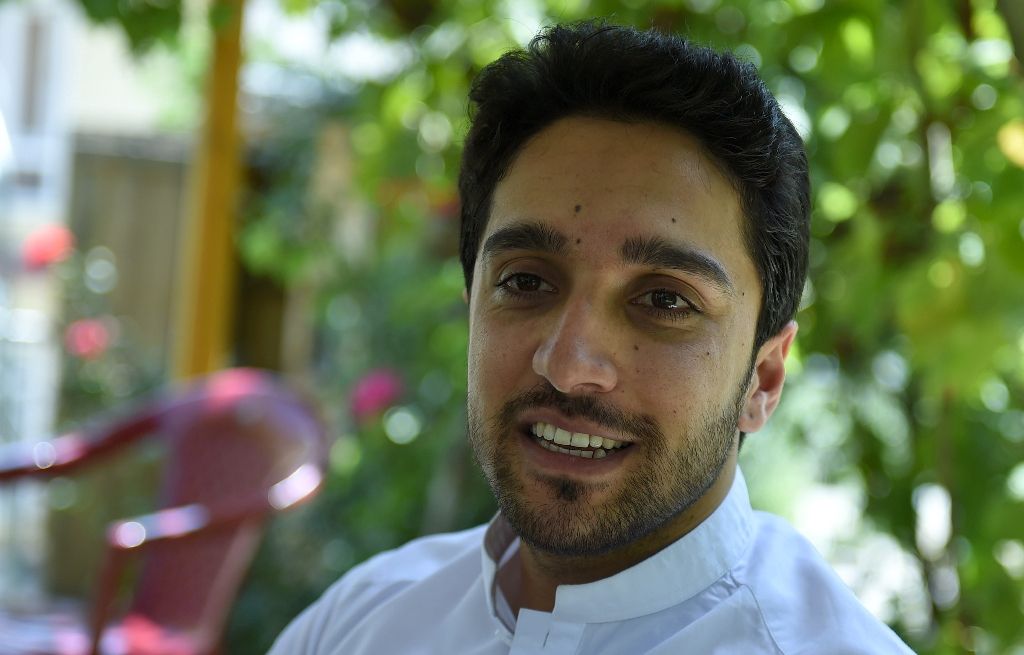Bazarak, Afghanistan-Fifteen years after his first public appearance at the tender age of 12 at his father’s funeral, Ahmed Massoud, the son of Ahmed Shah Massoud, is ready to step into the spotlight once more.
When he was a child, Massoud, a tiny figure, walked head down in grief beside his legendary father’s coffin.
But 15 years later, when he arrives unannounced at his father’s tomb in an immaculate white shalwar kameez, it is as though he were an apparition: a woman in a burqa falls to her knees and wails, while an elderly man in a faded turban wipes his eyes.
The young Ahmed has the same deep brown eyes as his father, whose portrait — by turns pensive, serious, laughing — adorns every wall, shop, corner of every road in the valley he held undefeated.
Dubbed the “Lion of Panjshir”, Massoud the elder was commander of a force that battered one of the world’s two superpowers into submission, and later of the Northern Alliance formed to fight the Taliban.
He is a national hero, though memories of him in Kabul are tainted by destruction in the capital during the civil war of the 1990s.
But in the famed Panjshir Valley, three hours north of the city, devotion is without nuance.
Massoud was killed on September 9, 2001, by two fake reporters sent by Al-Qaeda, the terrorist organization’s gift to its hosts in Afghanistan, the Taliban.
It was just two days before its attacks on the United States.
Fifteen years on Ahmad recounts his father’s last days to AFP, surrounded by flowers in the family’s garden, their brightness set off by the camel-colored mountains of the valley.
Coming face to face with his father’s body was a profound shock for a child who, despite war’s devastation, had never seen a corpse before.
“From that moment I realized I had to change everything I learned so far, and at the age of 12 I had to be another person.”
All of Panjshir attended the commander’s funeral amid chaos: by then the 9/11 attacks had taken place, and Afghanistan — still under Taliban rule — knew it would be war.
When Ahmad appeared, crowds surged behind him. The child walked with his head down, his hands clasped behind his back, as his father had done. His clear voice moved mourners to tears as he echoed Massoud’s call for independence.
It was not until years later that he understood the true burden of his inheritance.
“I was in love with astronomy,” he told AFP. “I was full of energy, I was on fire.”
But one of his father’s friends told him: “We expect you to work on a solution for the Afghan people, and I don’t think you will find it on another planet.”
His passion doused, he made instead for London, King’s College to study international relations. Now 27, Ahmed is set to complete his schooling and return home.
It was all for Afghanistan, he says.
“I studied to come back. I have no dual nationalities, I have no property outside Afghanistan, I have nothing… I am completely devoted.”
